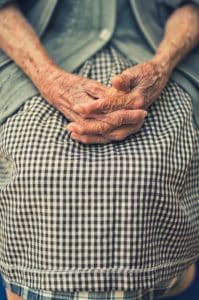Are you responsible for the care of a sick or aging loved one? As your friend or family member continues to need increasing care, it becomes nearly impossible to meet all of their needs as well as your own. Recognizing when you need outside support is good for you, and your loved one, too! Like most care decisions, knowing when to take this step can be difficult. Most people don’t realize the amount of in-home services that are available. You don’t need to jump to round-the-clock care! In fact, Preferred Home Health Care offers nursing services, personal care, companion and homemaker care, and much more tailored to your exacting needs. See below for a few tell-tale signs that it’s time to look into getting some help.

1. Your Loved One’s Needs Are Increasing
Changes in personal appearance and overall hygiene typically indicate a shift in physical and/or mental status. Even subtle behavioral changes may imply that someone is no longer willing or able to complete familiar tasks without support. You might have noticed Dad’s sudden weight loss, unopened mail beginning to pile up, or the continued use of dirty clothing. These are all signs that they need additional support.
2. Fear for Personal Safety and Health
As your loved one’s physical health declines, many caregivers begin to fear for their safety and well-being. If your loved one begins having difficulty standing for long periods of time or has difficulty maneuvering around the house, it’s likely time to look for help. A professional caregiver can reduce risks of injury and illness, keeping your friend or family member safe and helping them to maintain their independence.
3. You Are Neglecting Personal Responsibilities
As you focus your time and energy on making sure your loved one has everything they need, many caregivers begin to cut corners and neglect other responsibilities, including their own needs and wants. This leads to mounting frustration, burnout, stress, resentment, and more. By outsourcing some of these daily tasks, you will have more time and energy to handle your own priorities.

4. Loneliness or Signs of Depression
If you begin to notice your loved one exhibiting a loss of interest in hobbies or disconnecting from friends/family, this may indicate depression or loneliness. Keeping in regular contact with your loved one and hiring a caregiver who visits with them and interacts on a personal and social level can be crucial to your loved one’s emotional, mental, and physical well-being.
5. Unexplained Injuries or Self-Neglect
Many elderly adults do not readily admit when they’re no longer able to care for themselves. However, you can often spot signs of decline, including unexplained cuts, scrapes, bruises, or other signs of self-neglect.
— — —
Are you looking for more support in caring for a sick or aging loved one? We provide live-in services, including personal care, meal prep, transportation, housekeeping, and more. Care is available for as little as three hours a day or up to a full 24-hour period. Our caregivers can assist in many ways, from simply talking with your loved one or helping them stay sharp and engaged, to taking them out of the house to church, a family function, or the doctor. We deliver care based on each client’s needs. Visit our website for more information: www.preferredcares.com/service/homemaker-care/.
